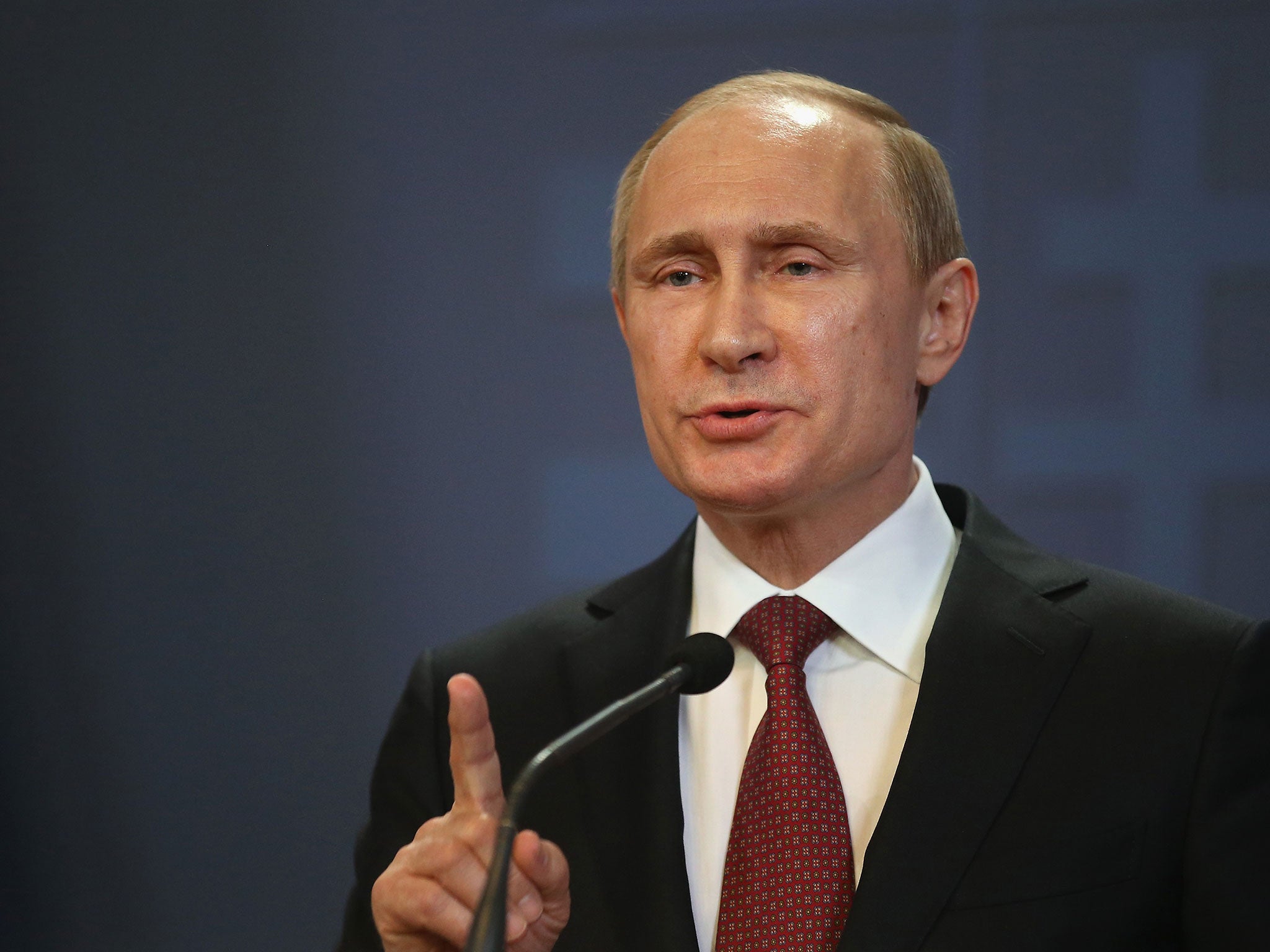Ukraine crisis: Russia is a threat to other Baltic states, warns Defence Secretary Michael Fallon
Fallon is worried Russia will use tactics used in Crimea against Lithuania, Latvia and Estonia

Vladimir Putin could repeat the tactics used to destabilise Ukraine in Baltic members of the Nato alliance, the Defence Secretary has warned.
Michael Fallon urged Nato to prepare to repulse Russian aggression in “whatever form it takes” as he acknowledged tensions between the alliance and Moscow were “warming up”.
He spoke after Ukrainian government forces retreated from a key strategic town which has been under siege by pro-Russian separatists for weeks.
Their departure from the town of Debaltseve followed fierce gun battles, despite a ceasefire agreed by both sides in Minsk last week. Rebels claim this truce does not apply to the town, which lies between the besieged cities of Donetsk and Luhansk.
The Ukrainian President Petro Poroshenko claimed his forces had fulfilled their duty in defending the town and called for UN peacekeepers to monitor the ceasefire in the east of the country.
In comments reported by The Times and The Daily Telegraph, Mr Fallon claimed there is a “real and present danger” Mr Putin could try to ignite tensions in former Soviet states such as Latvia, Lithuania and Estonia.
That could involve irregular troops, cyber attacks and inflaming tensions with ethnic Russian minorities in nations seen as part of the country's “near abroad” by Moscow.
“He was testing Nato all last year, if you look at the number of flights and the maritime activity,” said Mr Fallon.
“He flew two Russian bombers down the English Channel two weeks ago. We had to scramble jets very quickly to see them off. It’s the first time since the height of the Cold War, it’s the first time that’s happened."
The Defence Secretary was referring to an incident where the UK summoned the Russian ambassador to the Foreign Office after two Russian bombers flew over the English Channel, causing disruption to civil aviation.
Tensions between Russia and the Western world
Show all 8The former British ambassador to Russia reportedly claimed this was Mr Putin's way of showing the UK “what we are taking on”.
"That just shows you, you need to respond, each time he [Mr Putin] does something like that, you need to be ready to respond," Mr Fallon added.
Mr Fallon also voiced concerns over the sudden increase in Russia’s defence spending, describing it as “clearly worrying”.
Russia has always denied helping pro-Russian rebels and supplying them with weapons and troops.
He continued: “I’m worried about Putin. There’s no effective control of the border, I’m worried about his pressure on the Baltics, the way he is testing Nato, the submarines and aircraft.”
Mr Fallon, who was speaking to journalists as he travelled to Sierra Leone, said it was not a new Cold War with Russia because the situation is already “pretty warm”.
The Times reported that he said: “You have tanks and armour rolling across the Ukrainian border and you have an Estonian border guard being captured and not yet still returned.
“When you have jets being flown up the English Channel, when you have submarines in the North Sea, it looks to me like it's warming up.”
He spoke after David Cameron called on Europe to demonstrate to Russia that it will suffer economic and financial consequences for “many years to come” if it does not stop destabilising Ukraine.
Mr Cameron insisted Europe could not turn a “blind eye” to the Kremlin's actions.
Speaking during a visit to West Sussex, Mr Cameron underlined his intention to keep pressure on European Union partners to maintain the sanctions regime against Russia despite the ceasefire agreement.
Mr Cameron said: “Of course there's a temptation for every European country just to say 'Let's go on trading exactly as we have done with Russia, let's leave responsibility for what is happening in Ukraine to someone else and let's turn away'.
“I am afraid that would be a terrible mistake and Britain has been leading the argument in Europe saying Russia's behaviour in Ukraine has been completely unacceptable and consequences must follow that in terms of sanctions.”
Additional reporting by PA
Subscribe to Independent Premium to bookmark this article
Want to bookmark your favourite articles and stories to read or reference later? Start your Independent Premium subscription today.

Join our commenting forum
Join thought-provoking conversations, follow other Independent readers and see their replies